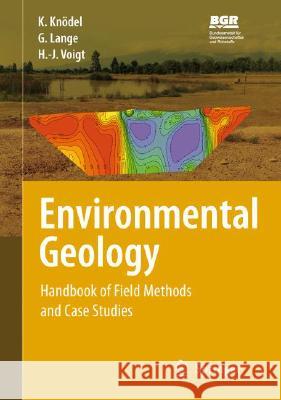Environmental Geology: Handbook of Field Methods and Case Studies » książka
Environmental Geology: Handbook of Field Methods and Case Studies
ISBN-13: 9783540746690 / Angielski / Twarda / 2007 / 1357 str.
As earth's population continues to grow and the detrimental aftereffects of industrialization and environmental negligence become more apparent, society has become more aware of, and concerned about, stewardship of the natural environment - water, soil, and air. Sustainable development has become more widely received and promoted in many parts of the world. The need is now critical for earth and environmental scientists and engineers to work together to implement technologies that can preserve our environment. The Earth's population was 6.6 billion as of April 2007 according to the U.S. Census Bureau. This number is expected to rise to 9.4 billion by 2050. The population is increasing the demand for natural resources and energy, and increasing stress on the environment. Thus, protection of the environment and remediation of damage to the environment must be a priority. It is also important to develop procedures that will help to avert further damage to the environment and to recognize as early as possible the risks associated with changes in the environment. Many methodologies and technologies have become more advanced in the past few decades, and new technologies and approaches have been developed, all to address the growing need for environmental assessment, monitoring, and remediation. As these technologies have grown, the need for interdisciplinary cooperation has also become more apparent. Specialists in remote sensing, geophysical methods, hydrogeology, geology, and geochemistry must maintain current awareness of developments within their sister disciplines in order to formulate effective overall approaches for environmental issues.











